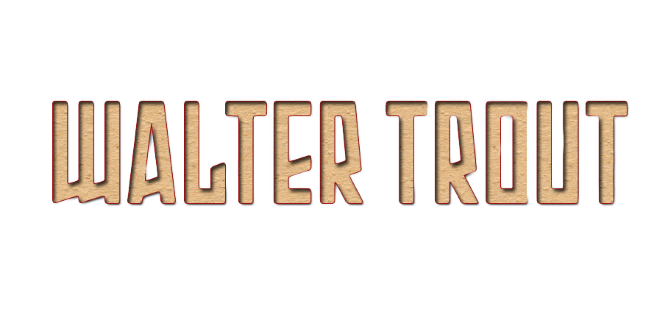
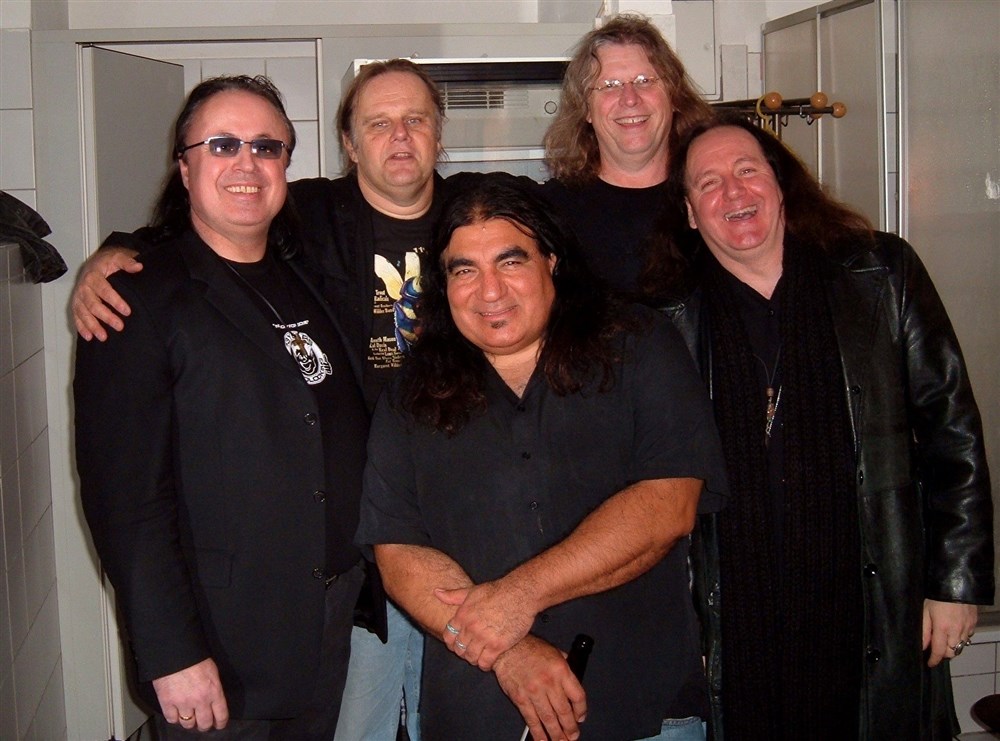
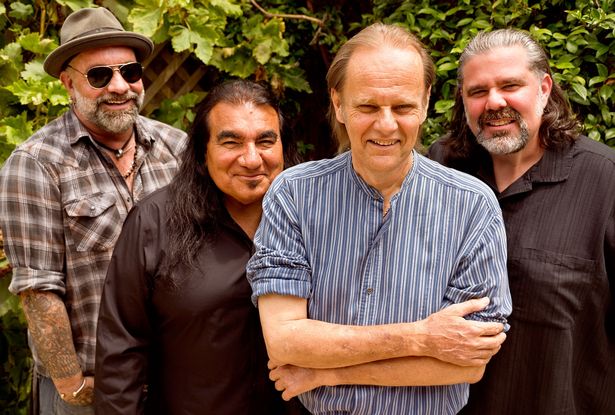
Walter Trout was born in Ocean City, New Jersey, on March 6, 1951 and is an American Blues/Blues rock guitarist.
He played with Canned Heat, John Lee Hooker, Big Mama Thornton and was a member of the legendary John Mayall's Bluesbreakers before starting his own band in 1989. His band is called Walter Trout and The Radicals and performs more than 200 times a year.
Before
At the age of twelve he received a guitar from his brother and although he had not played the trumpet without merit for years, it soon went forever in the suitcase. In the beginning it is mainly The Beatles who encourage him to play the guitar. Also people like B.B. King and Muddy Waters have a big influence on him, but guitar player Paul Butterfield has the most influence. Walter Trout says about him:
"He plays things three times as fast as another, and I will always try to match that style". In his first (school) bands, however, the young Walter Trout does not play the guitar, but the harmonica. At that time he played with his band in the same circuit as another band called Steel Mill. The singer and guitarist of that band was Bruce Springsteen, who would later become one of the biggest rock stars.
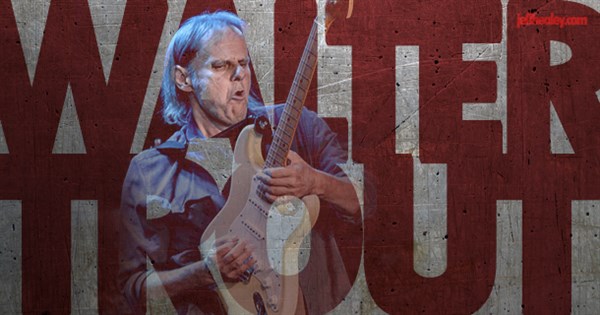
When Walter was sixteen, he moved from Atlantic City to New Jersey and had the opportunity to work as a guitarist in a band. This was the band of Louisiana Red, with which he plays together for four years.
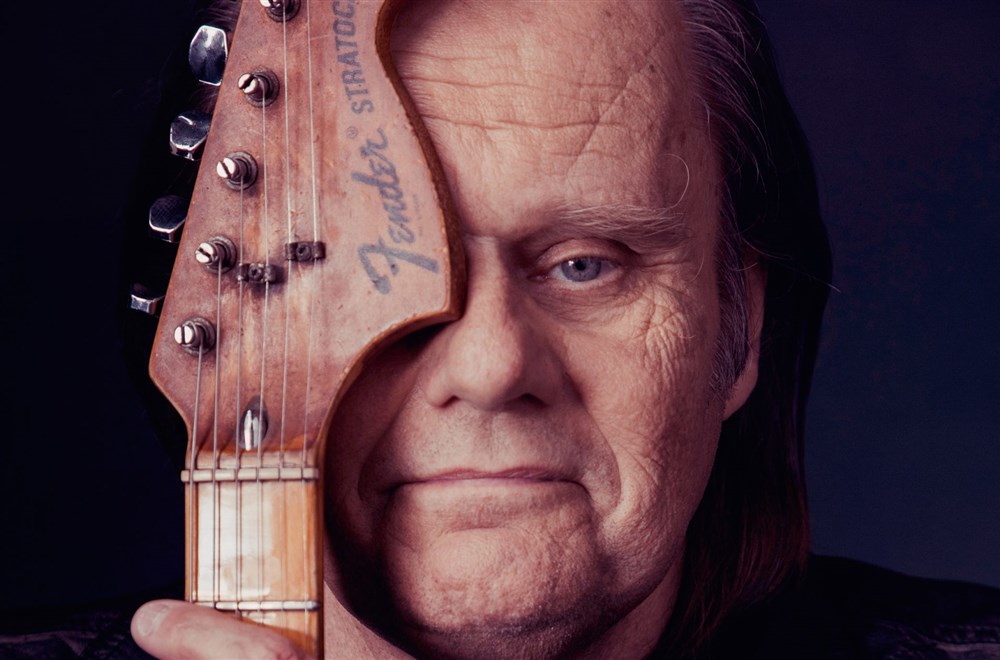
In 1973, Walter moved to Los Angeles, where he plays in various club bands for a number of years. During this period he also gained a lot of experience with artists such as John Lee Hooker, Joe Tex and Percy Mayfield. In 1979 he became a guitarist with Canned Heat. He played in that band for five years when he met John Mayall in 1984 and started playing in the The Bluesbreakers. He also played in this band for five years when one evening in 1989 he took over the singing part of John Mayall, because he was too sick to perform.
A few people from a small Danish record company were so impressed with his vocals and guitar playing that afterwards they offered him to put together their own band and undertake a tour through Scandinavia. Walter Trout thinks about the offer for two weeks and resigns from John Mayall on his birthday. Walter put his own band together with Jimmy Trapp on bass guitar, Daniel 'Mongo' Abrams on hammond organ and drummer Leroy Larson. They tour through Scandinavia and record their first album in 1990, entitled "Life In The Jungle". In addition to a number of studio songs, this album also contains four live songs, recorded during the Midtfyns Festival in Denmark.
Solo career
The second album, "Prisoner of a Dream", is released half a year after the debut album and is the band's first truly complete studio album. Drummer Klas Anderhel was behind the drums during the recordings of the album and during the accompanying tour. In October 1992 "Transition" was released, the band's third album. This time Bernie Persley was behind the drums and he will not soon leave.
After three albums, the livealbum "Life, No More Fishjokes" was released with a collection of the best Trout songs and a number of songs from others. In 1994 the album "Tellin 'Stories" was released with Martin Gerschwitz behind the keyboards. He had taken over the place of Daniel "Mongo" Abrams. Especially the song "Please Don't Go", which is about the death of Walter's mother, leaves a deep impression. The sixth album, "Breaking The Rules", was released in 1995 and was produced by Walter Trout himself, because he now wants to be in control and to get the real Walter Trout sound on the album.
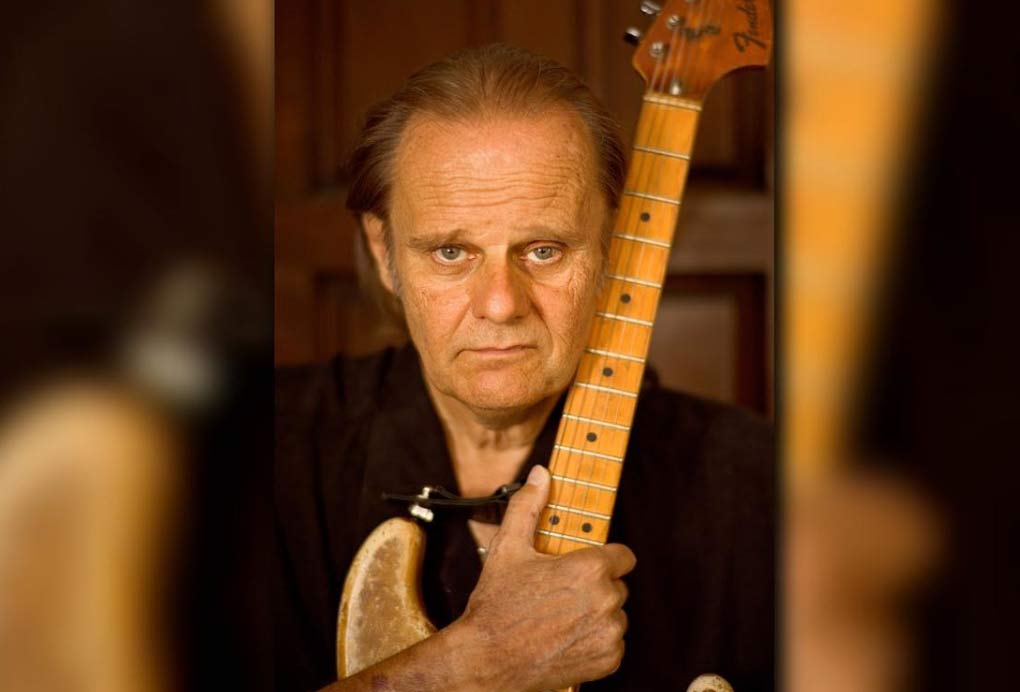
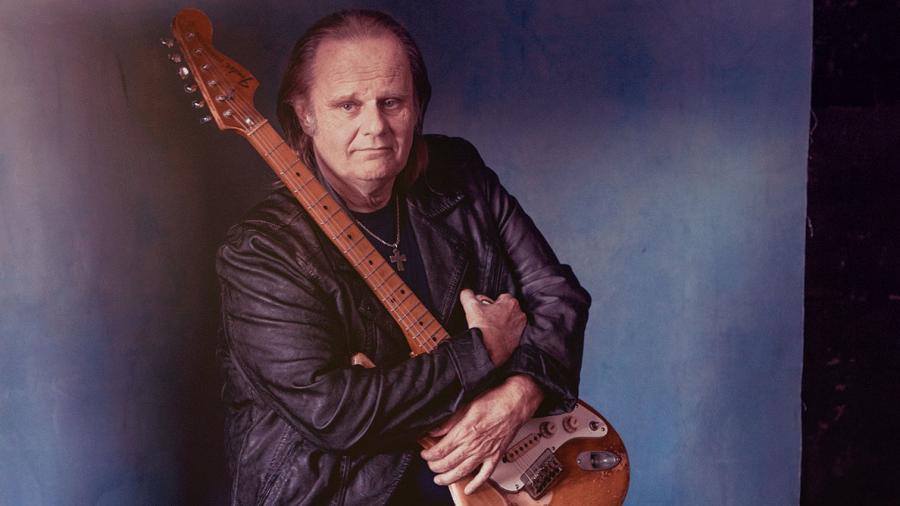
In 1997 a new studio album was released. It's called "Positively Beale Street" and was recorded in Memphis with producer Jim Gaines, who has previously produced albums for Stevie Ray Vaughan, Huey Lewis & The News and Steve Miller. On this album Rick Elliot is behind the drums, because Bernie Pershey is no longer able to play drums for health reasons. Rick Elliot also goes on tour with the band, but in 1998 Bernie Persley returns to the band. Martin Gerschwitz decides to step out of the band to continue working on his solo projects and his replacement is Paul Kallestad, who used to play a hammond organ just like 'Mongo'. The band goes on tour again and leaves a smashing impression.
In 1998, the band releases its "Positively Beale Street" album with there new record company Ruf Records in the United States, entitled Walter Trout. It contains the same songs as on "Positively Beale Street", but the order of the songs is slightly different, and so is the cover and the booklet. In 1999 the album "Livin 'Every Day" is released. This album was also recorded in Memphis, together with producer Jim Gaines.
For the first time, Paul Hallestad, the new Hammond Organ player, can be heard on a Walter Trout album. The group name has been changed to Walter Trout and the Free Radicals. Two live albums were released in 2000, namely "Face the Music (live on tour)" and "Live Trout". The latter is a double album recorded at the Tampa Bay Blues Festival in March 2000. In May 2001 a new studio album is planned. In January 2001 the name of the band changed again, because a band in America already bears the name 'The Free Radicals'.
The new name is: "Walter Trout and the Radicals". The name of the new album is "Go The Distance" and was in stores from May 22, 2001. Paul Hallestad is no longer a part of the band and has been replaced by Bill Mason. Just after the new album, Bernie Pershey left the band; he wanted to spend more time with his family. It is a coming and going with the band, Bill Mason has already been replaced by Sammy Avila. Behind the drums it is also hit: Kenny has done his job and has been replaced (very) briefly by Wess Johnson. Because over time this Wess Johnson did not really fit into the band, Joey Pafumi (XYZ) took his place at the beginning of April 2002.


Mid May 2003 the band records a real live CD/DVD in Paradiso in Amsterdam. The DVD went on sale at the end of August under the title "Relentless". The entire year of 2004 is spent touring and no album from the band was released.
Early 2005 the compilation album "Deep Trout" was released: The Early Years of Walter Trout. On this album are, as the subtitle suggests, songs from the beginning of Walter Trout's solo career when he was still under contract with the Provogue label.
In addition to these, there are also a number of special songs on it, including an old recording from 1973 of the song "So Sad To Be Lonely", in which Walter Trout can be heard singing and playing guitar in his then band.
In America this same album, with a few other songs, is released by Walter Trout's current record company Ruf-Records.
On August 24, 2005, bassist "from the first hour" Jimmy Trapp dies from the consequences of a major stroke.
Because he had been sick for a long time, there was already a replacement for him in the person of Rick Knapp. After Jimmy Trapp's death, Rick Knapp stays with the band, and he appears to have a fresh, energetic influence on this. In no time he gained his own place in the band.
For the year 2006 two projects are in the pipeline: first a jam album, on which, apart from Trout and the band, a number of other well-known guitarists will play a part, and a new studio album, for which Walter Trout already has many new songs that he has prepared while touring in 2005.
At the moment Walter Trout is labeled by the Dutch record company Provogue.
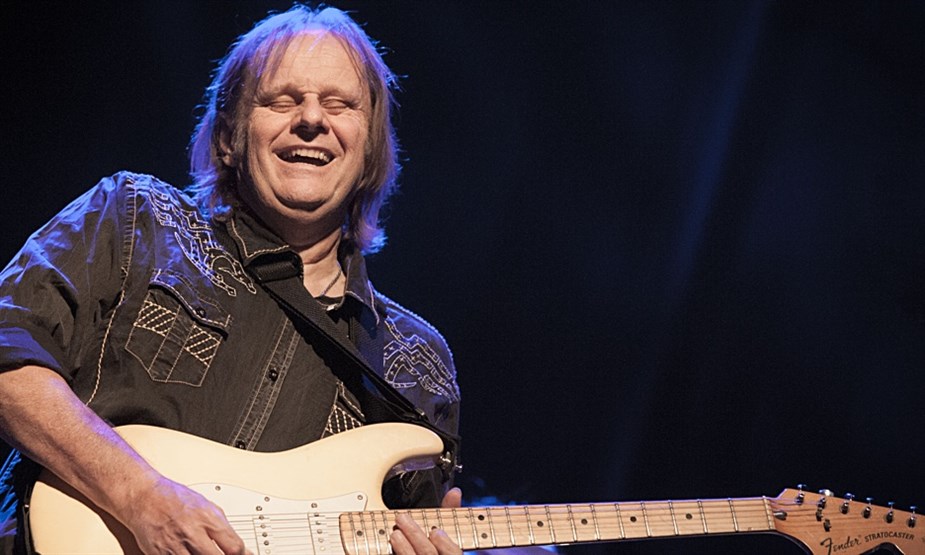
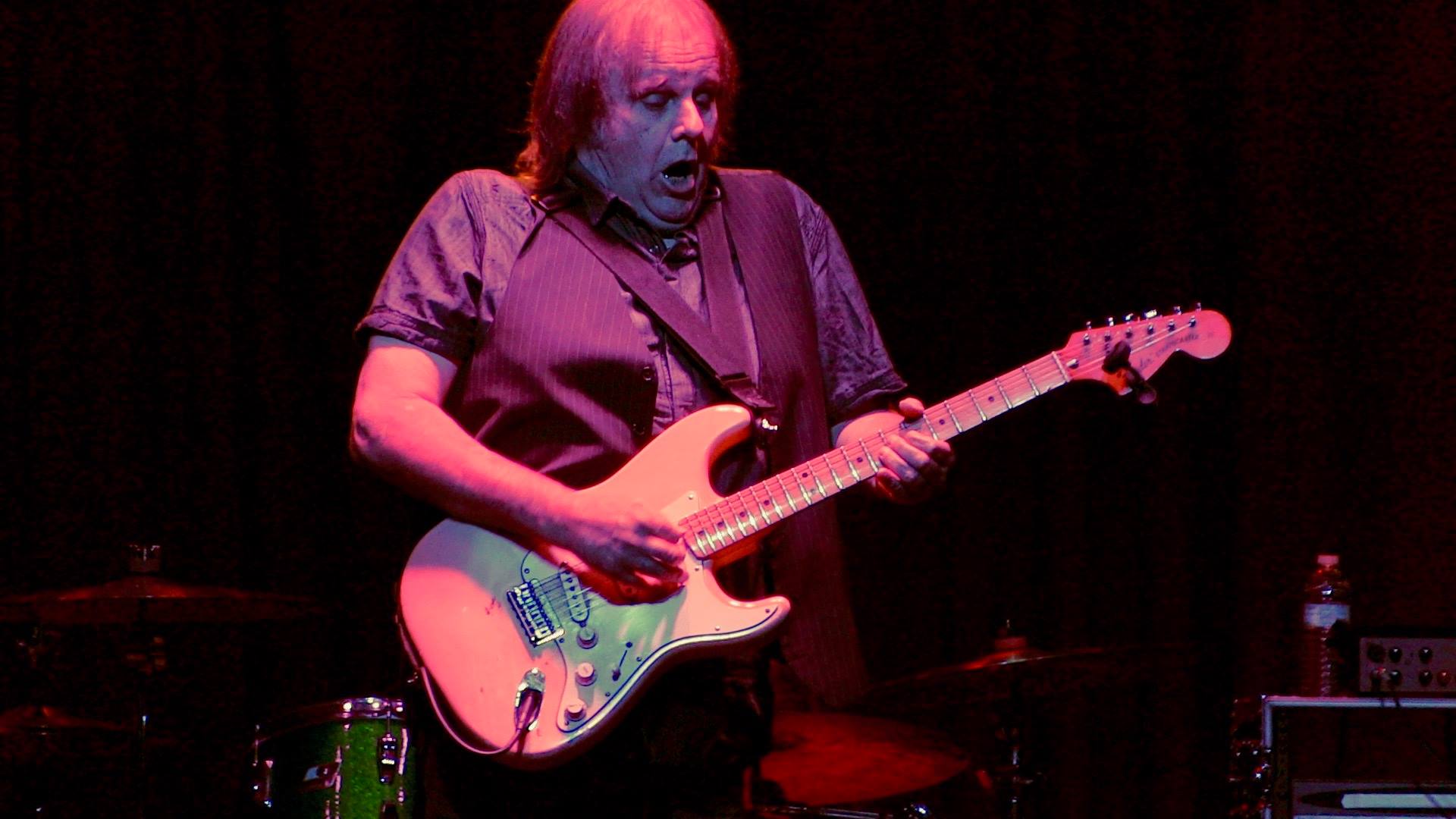
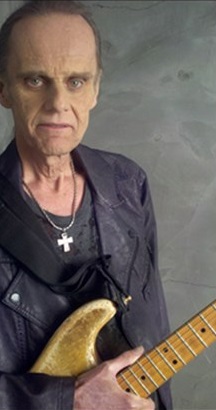
Disease
In March 2014, Walter´s wife Marie wrote the following message on Facebook:
Walter asked me to post this here: 'My heart breaks to post this message. We have waited to be sure, but Walter's doctors have confirmed the diagnosis:
his condition has deteriorated, and Walter's liver failure is spreading. If he does not get a new liver in the coming months, he will not make it.
During this debilitating illness, he did release the album "The Blues Came Callin'" in 2014. Where years have been anticipated and worked towards the 25-year anniversary of Walter Trout as a solo artist in 2014, benefit performances were given simultaneously by music friends from all over the world. The goal was to raise as quickly and as much money as possible for the treatment of Walter who was awaiting a liver transplant. After 8 months of waiting, Walter received the liver transplant and after a long recovery, Walter was again on stage on June 15, 2015 at the Royal Albert Hall in London. About this debilitating disease and recovery Walter wrote the album "Battle Scars" which was released in 2015.
In 2019, Walter Trout's album, "Survivor Blues", debuted with two consecutive weeks on the Billboard Blues Chart at number one and stayed in the top ten for twelve weeks. Metal Zone magazine, reviewed his performance in London by naming Walter Trout "the ultimate, supreme bluesman of the 20th and 21st centuries." In April 2022, Walter Trout announced his latest studio album Ride, alongside the lead single "Ghosts." Describing the title, Walter said, "... life is kind of a ride too, isn’t it? And I want to live mine to the fullest.” The album was released on August 19, 2022.
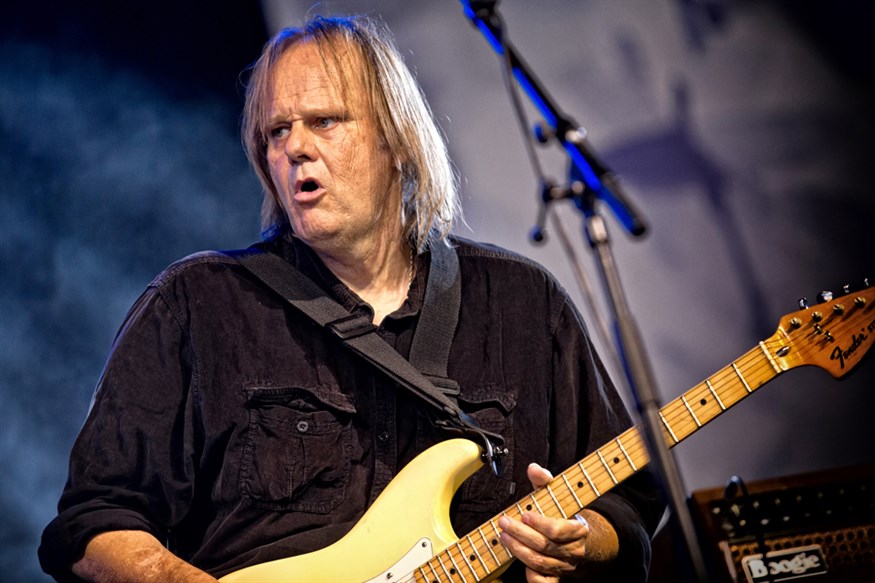
Marie Trout Introduces “Walter Trout” @ The Royal Albert Hall
6 years ago tonight, I made my return to the stage at Royal Albert Hall in London. I had gone 2 years without being on any stage anywhere. It had been 8 months in a hospital bed and then over a year to relearn how to play the guitar, walk and speak properly. To say I was apprehensive is an understatement. I didn't know if I would be able to play or sing or even stand long enough to get through a couple of songs. But I walked out on the stage at that beautiful venue, received a standing ovation, and felt the incredible outpouring of love and support from that crowd and it eased my fears.
My wife Marie, introduced me and when I came out, she and I embraced and wept openly. We both had to really pull ourselves together to get on with the show. I counted to 4 and that band came in behind me and I felt suddenly like I was back home where I belong. In the 6 years since then I have released 5 albums and I am currently recording my 6th since my return. I am overjoyed and deeply grateful to be alive and to be able to play music , and to be able to be a father and a husband again. Soon I will be back out on the road with my band able to play for you again ! It is my calling , and my passion .Thank you all And God-bless!
On his latest single "Waiting For The Dawn", released via Provogue/Mascot Label Group, the
iconic Blues-rock guitarist Walter Trout urges fans, and himself to stay strong, in light of all of the challenges we’ve faced over the past few years. "There were times in this pandemic where I have sunk into some pretty deep depressions, sitting around, wondering whether life has a point", Walter recalls. It’s the latest single from Walter’s new studio album "Ride", out August 19th. Written in his beloved and often-missed home in Huntington Beach, California, the album is filled with pointed reflections from Walter, informed by his decades
of stardom in the blues world. As long-standing Walter Trout fans know, the Golden State has been the bluesman’s home for 47 years. Walter joined John Mayall’s Bluesbreakers lineup in ’85, before embarking on an acclaimed solo career from ’89 onwards. But before that came his chaotic, self-destructive years as a jobbing lead guitarist, whether for revered-but-tricky blues pioneers like John Lee Hooker and Big Mama Thornton, or an unhinged tenure in an ’80s Canned Heat line-up controlled by the Hell’s Angels.
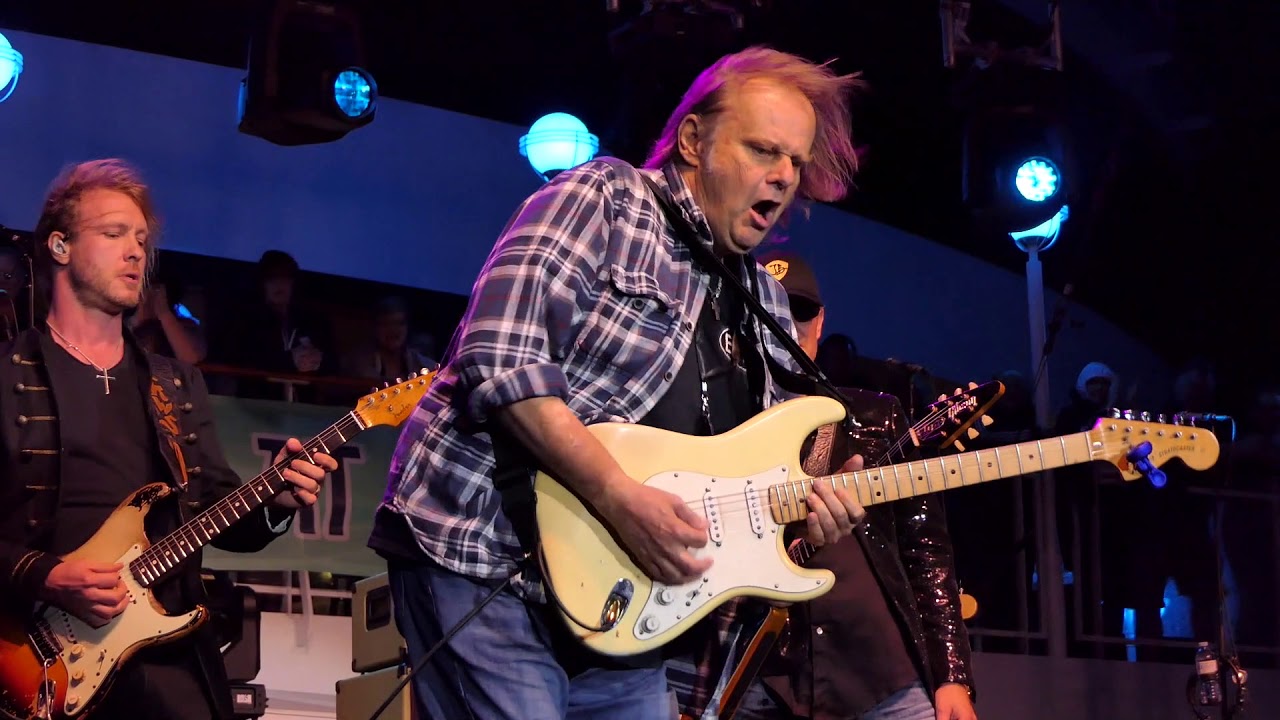

Walter’s well-documented excess in this era was darker than a young rock star cutting loose. It could all be traced back to his troubled childhood in New Jersey, he explains, where an unstable stepfather – himself the victim of shocking cruelty as a prisoner of war – was a terrifying presence. As "Ride" took form, such memories couldn’t help but flavor the music. “This album is obviously what I was going through mentally and emotionally,” he considers. “All I did was express it. I spent a lot of time crying, because I would dig down into my emotional core. I want my songs to have some sort of truth to them.”
Some memories that Walter Trout examines on "Ride" are long-distant but eternally poignant. Try the deceptively upbeat title track, another song that began as a poem, recounting the locomotive that rattled past his childhood home each night and enticed him to freight-hop to freedom. “That song is about what it felt like to lay there in bed and dream about escaping on that train. I also wanted to express that music has always been another sort of virtual escape for me.” He takes inspiration from the same period, with Walter debating whether his trauma could have been averted.
“I’m not pissed off with my mom and I love her memory,” he says, “but my wife says, ‘Your mom probably could have done more to protect you from your stepdad’. Yeah, maybe she could have. But it’s easy to say that looking back.” Walter Trout is the beating heart of the modern Blues rock scene. Respected by the old guard. Revered by the young guns. Adored by the fans who shake his hand after the show each night, and after five decades in the game, Walter Trout remains a talismanic figure. But, however fast or far a man travels, he can never truly outrun his past.
On the new album he found himself eyeing the horizon and the green shoots of his triumphant late career. There was a new record deal with Mascot/Provogue. A temporary move from California to Denmark to be with his beloved family. Even now, aged 70, Walter Trout was still writing fresh chapters of his life story. By now, Walter knows that nobody ever really leaves their old selves behind.
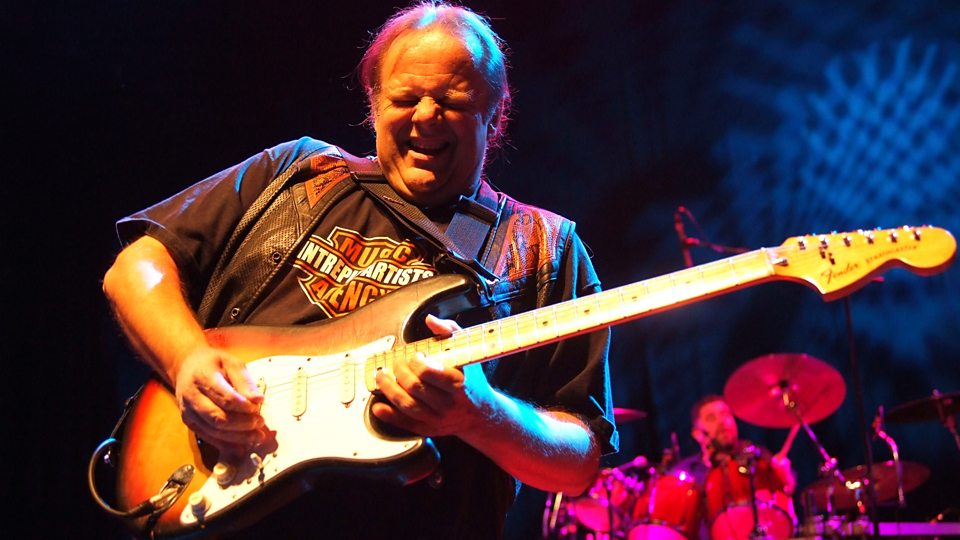
But with "Ride" providing an emotional release-valve – both for its creator and his loyal listeners – perhaps this veteran artist can reconcile with his past, accept his future and live in the present as it unfolds. “I think you can interpret this album title a few different ways,” he concludes. “I mean, this album is definitely a musical ride and I certainly tried to cover a lot of ground. But, really, life is kind of a ride too, isn’t it? And I want to live mine to the fullest.”

Musical influences
Walter claims to have been influenced by Paul Butterfield. On April 2, 2007,
he stated at Theater Romein in Leeuwarden, the Netherlands,
that he was successively influenced by three events:
The release of the first album by Bob Dylan,
The performance of The Beatles on February 9, 1964 during The Ed Sullivan Show,
Listening to Paul Butterfield for the first time.
He was awarded the Sena Performers European Guitar Award in 2015.
His music is a mix of Blues and Rock. His style is that of a guitar hero. His live performances are ferocious. With John Mayall's Bluesbreakers he played for the first time in the Netherlands at the North Sea Jazz Festival in 1988.
Private life
In 1990, Walter Trout met a 27-year-old advertising executive, Marie Brændgård during the recording of his second solo album, "Prisoner of a Dream", in Denmark. Although married at the time, he pursued her, and convinced her to leave Denmark and move to California. Walter filed for divorce. In 1991, they were married in Huntington Beach, California, where the couple still live with their three sons. They also maintain a residence in Denmark. Marie has managed Walter's career since 1993 and gained a PhD in Wisdom Studies in 2015. In February of 2017, her book The Blues-Why It Still Hurts So Good was released. Walter and Marie have co-written several songs together, and in 2021 their collaboration on the song "All Out of Tears", a three-way co-write with Teeny Tucker, won the "Song of the Year" Award at the Blues Awards in Memphis.
Albums
John Mayall's Bluesbreakers
Behind the Iron Curtain (live in Hungary) (1985)
Steppin' Out (2004)
Chicago Line, (1987)
Uncle John's Nickel Guitar (1994)
Blues Power (with bonus CD Life in the Jungle: Charly Blues Masterworks Vol. 4) (1999)
Blues Breaker (with 2 bonus tracks) (2000)
The Power of the Blues (live in Germany 1987) (1988)
New Bluesbreakers: The Blues Collection Vol. 8 (1993)
Blues Forever (with bonus CD Life in the Jungle: Charly Blues Masterworks Vol. 4) (2003)
Life in the Jungle: Charly Blues Masterworks Vol. 4 (1993)
Rolling with the Blues (live 1972–1973, 1980 and 1982) (2005)
The Private Collection (2006)
Walter Trout Band
Life in the Jungle (re-released in US in 2002) (1989)
Prisoner of a Dream (1990)
Transition (1992)
No More Fish Jokes (1992) live
Tellin' Stories (1994)
Breaking The Rules (1995)
Jimi Hendrix Music Festival (Janblues) (1996)
Positively Beale St. (1997)
Walter Trout and the Free Radicals
Walter Trout (same tracks as Positively Beale St.) (1998)
Livin' Every Day (1999)
Face The Music (Live on Tour) (2000)
Live Trout (2000)
Go The Distance (2001)
Walter Trout and the Radicals
Go The Distance (2001)
Relentless (2003)
Deep Trout: The Early Years of Walter Trout (2005)
Full Circle (featuring guest artists) (2006)
Hardcore (self released recording of the 'Power Trio' playing live in Europe) (2007)
Walter Trout
The Outsider (2008)
Unspoiled By Progress: 20 Years of Hardcore Blues (previously unreleased tracks and three new songs) (2009)
Common Ground (2010)
Blues For The Modern Daze (2012)
Luther's Blues (2013)
The Blues Came Callin' (2014)
Battle Scars (2015)
Alive In Amsterdam (2016)
We're All In This Together (2017)
Survivor Blues (2019)
Ordinary Madness (2020)
Ride (2022)
Source: Translated from the Dutch Wikipedia and waltertrout.com

